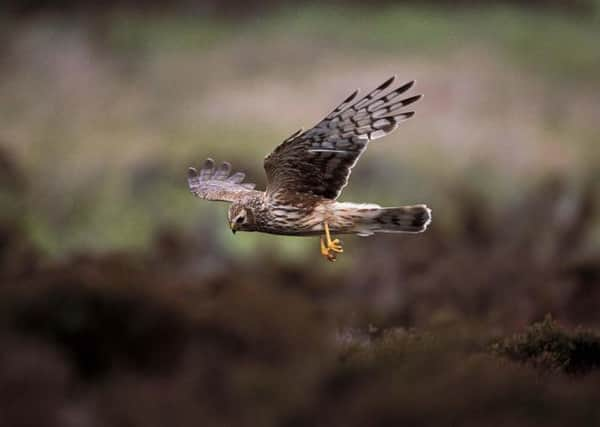Licences move to cut wildlife crime in Scotland


General licences allowing otherwise illegal acts, such as controlling certain bird species to protect crops or livestock, can now be withdrawn under measures to tackle raptor persecution.
Scottish Natural Heritage (SNH) said the restriction of licences would be made “on the basis of strong evidence” from police and on a civil, rather than criminal, standard of proof.
Advertisement
Hide AdAdvertisement
Hide AdEnvironment minister Paul Wheelhouse said the illegal persecution of birds of prey was “totally unacceptable and barbaric”.
He said: “I am both angry and very frustrated that a criminal minority continues to kill and persecute these magnificent birds for their own selfish ends.
“It is too often the case that there is clear evidence that a crime has been committed but the perpetrator is able to hide behind a wall of silence among those who really should be co-operating with the police.
“That is why I asked SNH to consider how better use can be made of general licences which, rather than a ‘right’, are a privilege that can and should be withdrawn where there is evidence of illegal activity.
“I am confident these new measures will be a powerful new weapon in our armoury in the fight against those perpetrating raptor persecution in Scotland and hopefully will deter those who might be tempted to commit such a selfish criminal act that stains Scotland’s reputation and potentially damages the rural economy.”
SNH chairman Ian Ross said raptor persecution affected the £1.4 billion a year value of nature tourism to Scotland’s economy.
Under the plans, general licences will be removed for three years, with possible extensions if evidence of further crime is discovered.
Advertisement
Hide AdAdvertisement
Hide AdDuncan Orr-Ewing, head of species and land management at RSPB Scotland, said: “Wildlife crime remains a serious problem in parts of Scotland impacting the populations of iconic species including golden eagle and hen harrier. We believe that SNH will have the widespread support.”
Douglas McAdam, chief executive of Scottish Land & Estates, said: “Overall, we support the objective of reducing the already small number of crimes against wild birds, but it is important to note that a large proportion of such incidents will be caused by people for whom general licences are not applicable.
“There does remain a need to ensure that evidence presented by police is sufficiently robust and the mechanism by which this is handled is seen to be fair and transparent.
“General licences are issued to farmers and landowners across a variety of businesses and often where there is a delivery of public policy objectives, including biodiversity and conservation, and we hope this will not be damaged in the process.”